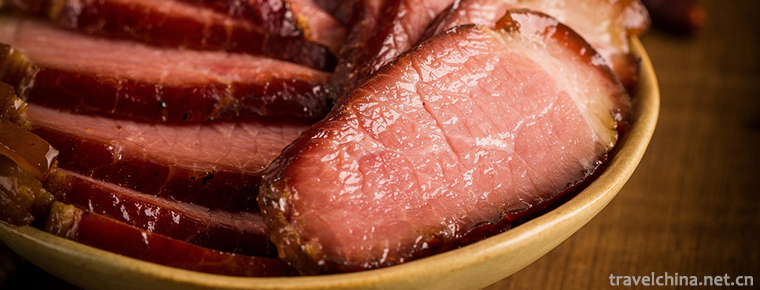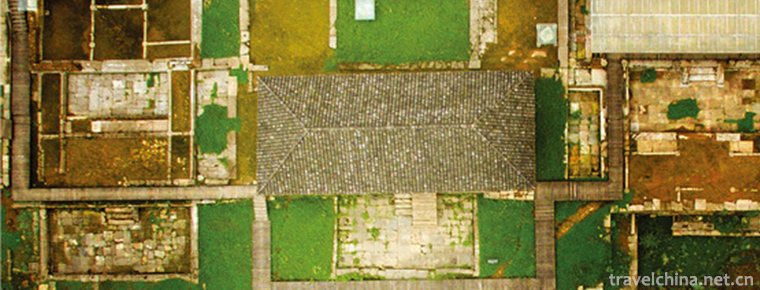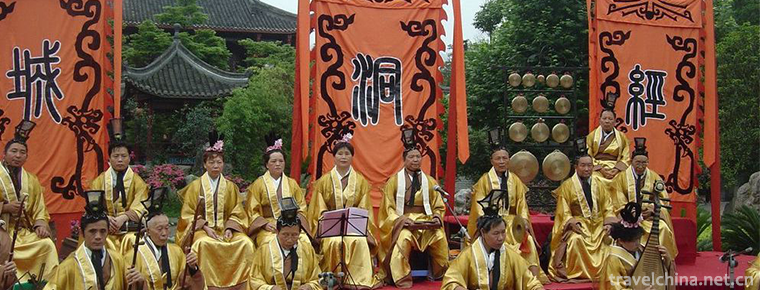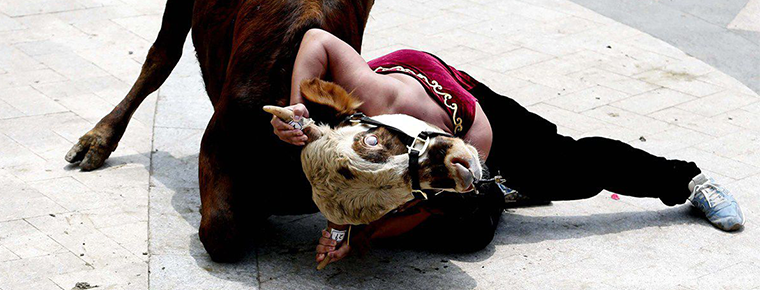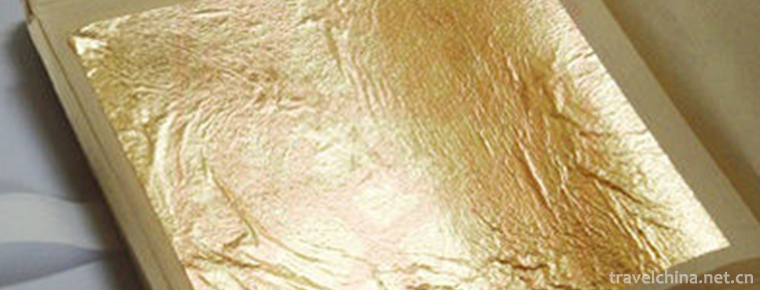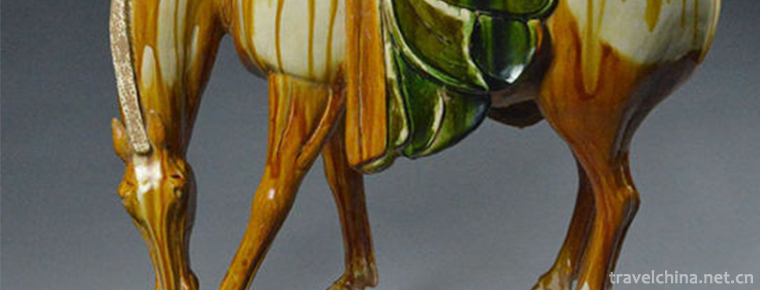Small febrile coma
Small febrile coma
Xiao Redun is a kind of traditional Wu rhetoric banter popular in Jiangsu, Zhejiang and Shanghai. It is also known as "Xiaogongshu", commonly known as "selling pear ointment candy". It is a kind of street rap art. The original meaning of "Xiao Re Duo" is a person's gibberish due to high fever and fever. Quyi named after this word is the art of rap with "full of absurd words".
At present, they are still active on the stage, but most of the actors are old enough to cultivate successors, and a large number of traditional songs also need to be recorded and collated, rescue and protection work is imminent.
On May 20, 2006, Hangzhou Xiaore Dusk was listed in the first batch of national intangible cultural heritage list with the approval of the State Council. In addition, it has also been listed in the first batch of national folk art protection lists in Zhejiang Province.
Historical Origin
the late Qing Dynasty
Tracing back to the origin of "Xiao Re Dung", according to the relevant data, Ningbo had a "gossip" in the Song and Yuan Dynasties, so it should have a history of four or five hundred years. Some people also say that it originated from the Hangzhou street in the late Qing Dynasty. "Chao Bao" was a local tabloid in Hangzhou at that time. Because of the poor printing quality, newspaper sellers, in order to attract customers, knocked on gongs and read out the main news in the newspaper at the same time. It was called "Saying Chao Bao". Later, the artist changed the way of talking about the newspaper to "talking about the news and singing about the newspaper", compiling and acting by himself. Because the form is funny and humorous, the content is funny, the lyrics are easy to understand, and the singing tone is a folk song and ditty familiar to the people, so it is deeply loved by people.
In 1905, in Town God's Temple, Shanghai, Du Baolin, who made a living from selling pear paste and sugar, used the form of rap and Chao newspaper to sell pear sugar, and changed the way of selling sugar artists who simply sang little songs or small jokes, and changed the content of rap from news to newspaper and life interesting to simple story plots, personalities and contradictions. Conflict shows. Because most of the programs express their dissatisfaction with real life, which often leads to official eviction, in order to avoid investigation, they call this form "Xiao Hot Faint", which means actors'own faint nonsense. The performance form is stereotyped as a person rapping on gongs, mainly singing, supplemented by speaking.
Early Republic of China
Hangzhou Gai World Amusement Park was established and Du Baolin was invited to perform. In order to enrich the performance program and performance skills, he transplanted Xiaoshan People's Worship of the Door God and other programs from Hangzhou's next-door drama. He also absorbed the performance skills of "learning local dialects" and "chanting" (imitating sound and imitating the song of hundreds of birds) in the next-door drama, and called his own form of speaking "waking up to the world to talk and laugh". However, people in Hangzhou, Shanghai and other places still call it "small hot dusk".
Xiao Hot Dusk not only enjoys great popularity among the audience, but also influences the formation and development of sister art. In 1927, Du Baolin's students, Jiang Xiaoxiao and Bao Lele, also entered Shanghai to perform "Fruit Jokes" and other small hot coma programs, which were warmly welcomed by the audience. Since then, many "selling" programs in small heat dusk have gradually been transplanted or adapted into one-legged shows, such as "Qinghe Bridge" and so on. Later, the comedy developed on the basis of Shanghai comedy, that is, one-legged play, also transplanted and adapted some small hot comedy programs such as "Tofu Shop on Fire".
The period of Counter-Japanese War
Xiao Reduo artists, who are furious with righteousness and indignation, often sing in the streets with local tunes accompanied by words and phrases propagating anti-Japanese content. For example, using the tune of "Suwu Shepherd"... One hundred and twenty-eight, the Dongyang soldiers, rushed into Zhabei. Artillery bombing, aircraft bombing, killing people, suffering disaster... In 1940, Japanese planes bombed Ningbo, and the ship from Ningbo to Zhenhai had just left the dock. Japanese planes fired machine guns at the dock. The crowd panicked and crowded to the side of the ship, causing the ship to sink and drowning dozens of people. The news in Ningbo was full of cries. Xiao Reduo artists use the tune of "crying Qiqi" to compile lyrics to describe the grief of their families in mourning the victims. They sing in the street accusing Japanese aggressors of atrocities, and the audiences all weep.
Orion of the Name
Xiao Redun is a traditional street rap art rooted in the folk and sung in Wu dialect. It began in the late Qing Dynasty and the early Republic of China and was introduced into Pinghu in the 1920s. "Hot faint" is a common vocabulary in Wu dialect. "Hot faint" is a derogatory word in the Chinese Opera, Opera and Music, but sometimes it is called "hot faint" as nonsense jokes and fantastic jokes, not derogatory. Because most of the singing content of "Xiao Hot Dusk" is based on social news, and most of them know the suffering of the laborious masses. Artists should speak for the people, reveal the boredom in their chest and expose the dark side of the social situation by irony, so they are very popular with the public. However, in order to avoid being persecuted by the reactionary authorities at that time, the content and form of this rap were transformed into "Jiayu Village Dialect" and "full of absurd words" in the art of rap, which is called "small heat coma", which means that a person is dizzy because of high fever.
According to legend, it was Xu Zhuoduan, a civilized actor, who first performed "Xiao Reduan", a Suzhou native, who once played a clown. After middle age, he pretended to be "hot dusk", and then Du Baolin, a street artist selling pear paste and sugar in Hangzhou, named Xiao Reduan as "Xiao Reduan" with the word "Xiao".
Performing Form
Xiao Redun was originally a kind of rap with the purpose of singing news and advertising commodities. Many artists boil pear paste candy by themselves and use this form of rap to promote sales. Later in the late Qing Dynasty and the early Republic of China, Du Baolin and other folk artists used obscure and tortuous singing methods, in the form of "talking about the pilgrimage", to talk about current events, news and jokes. The content of these stories was mostly a satire of the darkness of the society at that time. In order to avoid persecution and trouble, Du Baolin and other folk artists chose the name of "Xiao Hot Dusk". Later, it was known as "Xiao Hot Dusk" and prevailed in the 1920s and 1930s.
Small hot dusk, mostly singing in the open air, simple form, a pair of triangles, a bench, on behalf of the stage, one or two one-partner rap, accompanied by gongs or tricks. Generally speaking, we first beat gongs to attract audiences, then tell jokes, tell news, and finally sing long stories. It should be noted that the narrow sense of "Xiao Hot Dusk" refers to Du Baolin, the founder of "Xiao Hot Dusk", which is the prototype of Du Fulin, an artist who sells pear paste and sugar in Shanghai's comic masterpiece "Seventy-two Housekeepers".
artistic characteristics
Xiao Redun sings in Hangzhou dialect, usually accompanied by gongs or trick boards. The common tunes are "Gong Pioneer", "Sanqiao Fu", "Dongxiang Dialect" and "Wugeng", "Four Seasons" and "Ten Sighs".
There is no fixed performance venue for Xiao Hot Dusk's singing, which is usually performed in downtown streets. And there is no limit to the time of performance, singing in the East for an hour or two, see the crowd does not disperse, continue to sing; if the crowd is scarce, then change to the west to start singing. The performances are mostly in the vicinity of shipping ports, stations and vegetable farms, as well as in rural temple fairs and fairs. Choose a space before singing, draw a performance circle with white powder, play bamboo boards, drums and gongs, attract the audience, and other crowds gather, then start singing.
Little hot dusk is mostly a pair of partners, one playing bamboo board (commonly known as lotus board), one playing huqin or playing Gong (commonly known as "dog called gong"). Singing is mostly local operas and minor tunes, in the middle of a joke, or advertising for businesses. For example, before liberation, Ningbo had Siam Chinese silk and satin stores, which once called Xiao Reduo artists to wear waistcoats with the words "Lunhua" and sing advertisements on the street; there were also artists selling sugar and cotton yarn troupes in the middle of their singing.
Xiao Redun is very popular among the masses because of its verbal giggling and popular singing. Celebrity artists include Chen Changsheng (Xiao Deli), followed by Chen Guoan, Xu He and Yu Xiaofei. After the 1950s, most of the Xiao Hot Dusk artists became comic commentators, which has a lot to do with the "relaxed art" - one-legged and comic plays, which are active on the Shanghai stage today.
Inheritance value
Some people call it "gong book" according to the characteristics of accompaniment of beating Gong in Xiao Hot Dusk performance. Up to now, there have been six generations of successors. Although they are still active on the stage, most of them are old and in urgent need of training successors. Moreover, a large number of traditional songs also need to be recorded and collated. It is urgent to rescue and protect them.
The state attaches great importance to the protection of intangible cultural heritage. On May 20, 2006, Xiaore Dusk in Hangzhou was listed in the first batch of national intangible cultural heritage list with the approval of the State Council. In addition, it has also been listed in the first batch of national folk art protection lists in Zhejiang Province.
Artistic celebrities
Du Baolin
In 1914, Du Baolin entered the recreational arena to cover the world. Performing on the stage of the entertainment arena is not as casual as street rap. In order to enrich his own reserved programs, Du Baolin adapted and transplanted the passages of next-door operas such as Shaoxing People Riding Trains, Blind People Borrowing Umbrellas and Tofu Shop on Fire. Pinghu "Xiao Hot Dusk" was introduced by Lu Jinsheng, a Kunshan native in Jiangsu Province in the 1920s.
In the 1930s, there were twenty or thirty artists in Hangzhou. Du Baolin's apprentice, Xiao Ruyi (Ding Yousheng), is the second generation descendant of Xiao Reduo. In addition, there are Xiao Changgen (Cheng Changfa), Xiao Ruyi's apprentice, and Zhao Wensheng. They sang in the areas of Hangzhou, Ningbo, Jinhua, Jiaxing and Shanghai, and were welcomed by the masses. During this period, Xiao Redun appeared in the form of rap and singing in double gear, such as Xiao Ruyi's disciple Zhu Lingsai and his wife Wang Yuqin. In the 17th year of the Republic of China (1928), Xiao Rufei (Yu Xiaofei) was born as a teacher. Yu Xiaofei is good at singing ninety tunes and eighteen tunes. He works with his wife, Zhao Meiying, in Hangzhou, Jiahu and southern Jiangsu.
After the victory of the War of Resistance Against Japan, in addition to Yu Xiaofei, Hangzhou Xiaore coma artists also had Xu Letian, Luo Xiaofeng, Chen Jinlin and other apprentices of Xiao Lefu. The long stories often talked and sung include the ancient themes such as "Fire Red Lotus Temple", "Gu Dingchen", "Meng Lijun", "Bamei Tu", "Jigong Zhuan", and the contemporary themes such as "Singing and Laughing Marriage", "Huang Hui Ru Lu Genrong", "Gu Yu Ruisheng".
After the liberation of Hangzhou, the Drama Improvement Association was established in 1950. Yu Xiaofei, Xu Letian and An Zhongwen, artists of Xiaore Dusk, participated in the Quyi Improvement Society, and Yu Xiaofei was elected as the director. In September 1958, the Hangzhou Quyi Troupe was founded and Yu Xiaofei was the head of the troupe. In November, the Zhejiang Quyi Workers Association was established with Yu Xiaofei as its chairman.
Xiao Hot Dusk in the 1950s belongs to the fourth generation, represented by Anzhong Wen (Xiao Xiangfei). He is Yu Xiaofei's proud student, good at the Southern Dialect and the Northern Dialect, and a patriotic artist who can compile and sing well and insist on innovation. In August 1958, he participated in the National Quyi Concert and performed as an excellent piece in Huairen Tang of Zhongnanhai for the central leading comrades. He was met by Zhou Enlai, Dong Biwu and other national leaders.
Sun Caiyao, Cao Lao Wu Raising Pigs, Lianliandong, Chopping Cables, Lai Alai, Cheap Goods, Old Man Zhang, as well as the adapted "Bi Daughter-in-law", "New Appearance of Vegetable Ground" and "Fruit Recruitment" have been performing for a long time and won many awards.
In 1980, Zhou Zhihua, a one-legged actor in the rap troupe of the Municipal Opera Troupe, was also good at singing Xiao Hot Dusk. His short hot dusk passages Sweet and Sweet and Suffering for Yourself were well received by the audience.
In the 1980s, Xiao'an Xu, the son of Anzhong Wen, and Huang Xiangao, the comedian, were also popular with the audience.
From 1890 to 1930, Chen Changsheng, a young man who went to Suzhou to sell pear ointment candy as a teacher, learned to sing Xiaoqu and sell pear ointment candy. Around the third year of Xuantong (1911), Du Baolin returned to Hangzhou, compiling the news in Hangzhou's court newspapers into easy-to-understand lyrics, and absorbing Chen Changsheng's form of singing ditties, jointly speaking and singing performances, in order to attract more audiences. Du Baolin's rap art is funny and funny. The content mainly satirizes the dark forces. In order to avoid the trouble of the authorities, Du Baolin took "Xiao Hot Faint" as his artistic name, which means dizziness due to fever and full of nonsense, so he needn't take it seriously. Small hot dusk forms are flexible and simple. A wooden box containing pear paste and sugar is placed on a shelf. The artist stands on a bench. The musical instrument has only one Gong and three bamboo boards. In the early years of the Republic of China, Du Baolin often sang in Yingzi Road (now opposite the Pacific Cinema on Jiefang Street), Yangbatou Hunan Guild Hall, under his banner (now Longxiang Bridge to Kaiyuan Bridge), Zhongan Bridge and the open space square around Chengdu Station.
Anzhong Wen
Xiao Xiangfei, the artistic name, is the fourth generation of Hangzhou traditional folk art "Xiao Redun".
Zhou Zhihua
Xiao Redun is the sixth generation of inheritors and the representative inheritor of national intangible cultural heritage. State-level actors. In 1986, he was honored as one of the eighteen Comedians in the "Famous Comedians'Meeting Series in Jiangsu, Zhejiang and Shanghai". Hangzhou TV Pearl Channel "A Liutou Says News" and "Happy Teahouse" well-known hosts;
Xiao Redun's "Always a Demolition Household" won the Peony Award, the highest award of Chinese opera.
In 1997, he won the third prize of Excellent Drama Award of the 7th Zhejiang Drama Festival and the 5th China Population and Culture Award of "Selitzer Cup".
Xiao Redun's "Wedding Variations" won the first prize of Zhejiang Quyi Literature Competition in 1999, Zhejiang Quyi New Works Exhibition Excellent Creation Award, Excellent Performance Award, Hangzhou 1999 Creation Achievement Award, and China Population Culture Award.
He won the second prize of Hangzhou Fifth "Hangzhou Literature and Art Award" for his comedy "Guardian of Heaven" (cooperation with others) and his one-legged play "Mood". In 2000, Hangzhou won the "Five-One Project" Award for the construction of spiritual civilization.
In 2010, the "National Non-material Cultural Heritage - Hangzhou Small Hot Dusk Training Course" was held to teach Xiao Hot Dusk rap, with more than 10 disciples. During this period, he created some excellent little hot comic repertoires, such as "Glorious Course", "Legend of Children's Lane", "Respecting the Elderly and Filial Piety", "Bodhisattva Blessing" and "Boss's Phenomenon".
Xu Xiaoan
Hangzhou Funny Art Theater is a full-time playwright and the fifth generation of Hangzhou Xiao Hot Dusk. His works have won the National Quyi Competition Award and the Hangzhou "Five One" Project Award.
Zhou Fulin
Zhou Fulin (1903-1987) was born in Zhoudongzhuang, Gushan, Jiangyin. In his early years, he worshiped Chen Guoan, the son of Chen Changsheng (Xiao Deli), to sing Xiao Hot Dusk for his teacher. After that, he was recognized as a disciple by Du Fulin, the king of Shanghai Xiao Hot Dusk (Zibaolin). Then he was named Xiao Fulin, and he was the brother of Zhang Jiantang, a famous playback artist. In the thirteenth year of the Republic of China (1924), Xiao Fulin sang a little hot dusk at Huixi's self-supporting portal. He lives in Zhoushanbang, has a "Cuiyun Zhai" pear paste sugar shop, often in Chong'an Temple Sanshengge Pavilion, Zhoushanbang, communication road fixed-point and regular rap. In spring and summer, they also brought their own boats to Changshu, Suzhou, Changzhou and other places to talk and sing. He often used seven or eight kinds of songs, such as "Pear Ointment Sugar Tune", "Awakening the World Tune" and "Sales Tune". I remember his "Xiaogong Fu" has such a few sentences: "When Xiaogong knocks on the opening, it's really noisy inside and outside the venue. I don't sing about Bigger. I sing two funny opening paragraphs. It's amazing to say that it's strange to come here. It's amazing that Wuxi people came to Changzhou by boat and swallowed red-eyed mackerel in the belly halfway. Digg's surprise is not surprising, and there's also surprise behind. There's a tea shop in the public garden. My boiled water friend called A'er. Once I listened to my funny singing. Don't be careful about the boiled water. One is in a cup of tea with Dou Dule. He sang some social news in dozens of tunes, such as "Sanqiao Fu", "Sighing Wugeng", "Ten Sighing Empty", "Little Widow Going to the Tomb". Although the culture is not high, Zhou Fulin's editing ability is not low. During the Anti-Japanese War, he compiled and performed "Toyota Red Man's Bad Things", "Singing 128", "Nineteenth Route Army Fighting Toyota", "Harmful Rice Moth", "Sheng Xingsun Selling Railway" and "A Cucumber's Three Flat Points". He also sang "Gun Ruisheng", "Huang Huiru and Lu Genrong" and "Lin Zexu Banned Opium". Wait for the repertoire. Being good at singing twisting fuziboards, he kept singing for 13 minutes without stopping, and often moved to urban and rural areas of Suxi and Changzhou. His voice is far higher than that of blind A Bing. After the founding of New China, in order to cooperate with the anti-American and aid the DPRK, the charity performance donated aircraft and artillery; in line with the patriotic health campaign, the charity performance "eliminating four evils" and so on, was the only representative of street artists in the first literary Congress of Wuxi. His shop is run by his wife and children, and business has been good. People in Wuxi cough sickness, even foreign guests often go to his shop to buy cough pear paste, as a gift of Wuxi specialty.
Jia Youfu
Yiwu Fotang Town, artistic name "Jia Funny", nicknamed "Fotang Malaria" born in 1931, member of Zhejiang Quyi Artists Association, 17-year-old art, good at Gong shu. In the 1950s, he had such repertoires as Contrast between the Old and New Societies and The Misery of a Child's Daughter-in-law. In 1988, he won the second prize for "Grandmother-in-law" created and performed in Jinhua District. In 1990, he won the first prize for "Good Things Mill". His lyrics were humorous and interesting, and were deeply loved by the masses. In December 1998, Jia Youfu was awarded the title of "Deyi Shuangxin" artist by Zhejiang Cultural Department and Zhejiang Quyi Artists Association.
Since the 1990s, Gong Shu has become increasingly depressed, performing in only a few rural areas, and the number of people who are proficient in this art is decreasing. Jia Youfu died of illness in 2006, and then he left his beloved Gong Shu art forever. Shen Zhangzhong is the only person who will perform Gong Shu in Yiwu, which will be inherited and endangered.
Inheritance relationship
Originator of Kaishan: Du Baolin
The second generation: Xiao Ruyi (Ding Yousheng), Jiang Xiaoxiao, Bao Lele, Zhou Fulin (Xiao Fulin, Wuxi faction), Zhang Jiantang (later changed to singing and playing).
Third Generation: Yang Huasheng (Note: Shicheng Bao Lele), Cheng Changfa (Xiao Changgen), Zhao Wensheng (Opening Laughter), Yu Xiaofei (Xiao Rufei), Zhu Keqin, Zhou Rendi (Xiao Rendi), Youshengmao (Xiao Xiaolin) (Wuxi School)
Fourth Generation: Chen Shaozhang, Xia Yutian, An Zhongwen, etc.
Fifth Generation: Yu Shunjin (Xiao Fulu), Chen Jinlin, Luo Xiaofeng, Xu Xiaoan, etc.
Sixth Generation: Jia Youfu (Jia Funny, Shichengluo Xiaofeng, Yiwu School); Zhou Zhihua
Seventh Generation: Yu Kangfa, Lou Chongwei, Du Jingwen, Dong Songbo, Jin Yige and so on (all teachers Cheng Zhouzhihua)

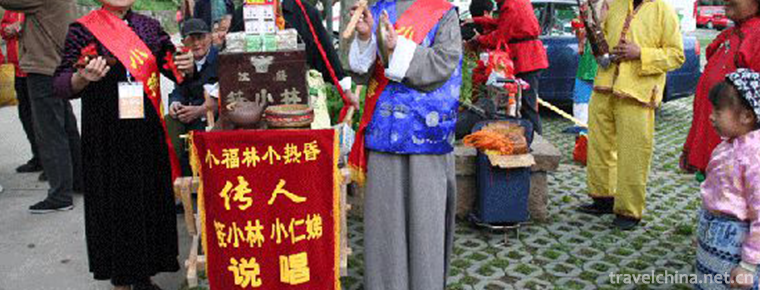
-
Guanmenshan National Forest Park
Guanmenshan National Forest Park is located 70 kilometers southeast of Benxi City. The Forest Park covers an area of 3517 hectares, with an altitude of 310-1234 meters and a forest coverage .
Views: 153 Time 2018-12-24 -
Hailongtun Site
Hailongtun is located on the top of Longyan Mountain, about 28 kilometers northwest of Zunyi City, Guizhou Province. It is also called Hailongdun, Longyantun and Longyantun..
Views: 164 Time 2019-01-13 -
Jinjiang hot spring
Jinjiang Hot Spring is located on the Bank of Jinjiang River, Datian Town, Enping City, which is the hometown of hot springs in China. It is backed by Qixingkeng primitive forest, deep mountains and g.
Views: 156 Time 2019-01-29 -
Limutai Natural Scenic Area
Limutai Natural Scenic Spot is located at the northernmost end of Tianjin, known as "Tianjin Arctic". In the scenic area, the peak forest and canyon are strong and dangerous.
Views: 171 Time 2019-01-29 -
dongjing music
Dongjing music is a very ancient traditional instrumental music, which originated in Sichuan Province in the Song Dynasty and is now popular in Sichuan Province.
Views: 118 Time 2019-04-28 -
Bullfight
Bull-wrestling is a traditional competitive sport of the Hui people. It means throwing, wrestling and throwing. It can also be called bullfighting of the Hui people..
Views: 99 Time 2019-05-01 -
Forging Technology of Nanjing Gold Foil
Nanjing gold foil forging technology, local traditional handicraft in Nanjing, Jiangsu Province, is one of the national intangible cultural heritage..
Views: 111 Time 2019-06-07 -
Tang Sancai Techniques
Tang tri coloured firing technique originated from the early Tang Dynasty. The tri coloured glazed pottery of Tang Dynasty, as the essence of traditional Chinese art in the Tang Dynasty, has a history.
Views: 121 Time 2019-06-18 -
Peking Union Medical College
The Chinese Academy of Medical Sciences was established in 1956. Peking Union Medical College was founded in 1917. Since 1957, the Chinese Academy of Medical Sciences and Peking Union Medical College .
Views: 231 Time 2019-09-06 -
Shihaidong scenic spot
Shihaidong scenic spot is located in Xingwen County in the south of Sichuan Province. Because the stone forest and karst caves in the county are distributed in 17 townships, it is known as "stone sea cave town"..
Views: 308 Time 2020-10-16
